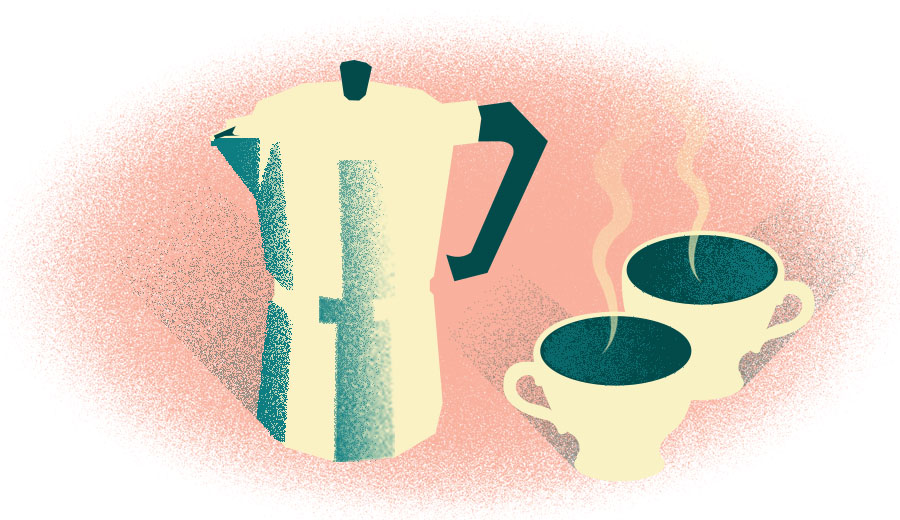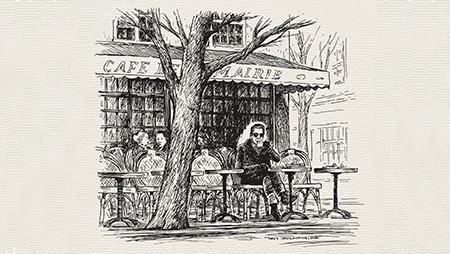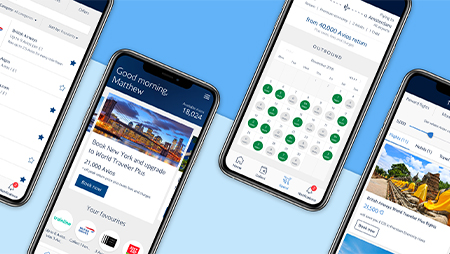WELLBEING • May 2020
An expert’s guide to working from home
You’re at home right now and there’s a chance your job has followed you there. This new way of working, especially when paired with partners, flatmates, children and pets, is creating bounteous challenges. We ask health psychologist Philipp Frank for his ideas on how to make home working a stress-free and productive experience
Stick to a routine
Where possible, stick to your pre-lockdown routine. Both our bodies and our minds are wired to a certain rhythm and our daily routines interact with what is happening inside us, biochemically. Our stress hormone, cortisol, spikes shortly after we wake up, slowly decreasing throughout the day. This spike correlates to energy, so the fewer changes to our routine means the less impact on your ability to seize the day, and relax at night.
Philipp’s top tip: Wake up at your usual hour (which should be similar each day) and be sure to distinguish your lunch break with change of scenery.
Optimum comfort
Be it the kitchen table or your own desk in a private study, it’s essential that your workspace is a comfortable and positive environment to be in. It’s also important that your place of work is different to your places of relaxation, in order to create healthy separation. Plants, meanwhile, are proven stress-relievers and can brighten up any space, boosting happiness and productivity. They also improve oxygen levels and air quality.
Philipp’s top tip: It’s important to try to keep your workspace organised – this will have a big impact on how ordered and structured you feel internally.

Minimise distractions
In the absence of face-to-face interaction with your co-workers, you’re likely to have lots of video meetings throughout the day. Organise your diary so you have a balance of meetings and more focused stretches of work. If you can set aside a day with no meetings, take this time to concentrate on the big tasks you’ve been putting off. Feeling distracted? Take a break and relax for a few minutes, before returning to a more engaging, interactive task that will re-shift your attention.
Philipp’s top tip: Research shows that the best music to aid concentration is melodic, with a repetitive rhythm and no vocals. This could be anything from classical to techno.
Stay connected
For most, working from home comes at the expense of the daily chatter and watercooler moments that occur in the workplace. From a broader health perspective, social relationships are incredibly powerful. Studies show that connected people, when compared to socially disconnected people, have far better mental and physical health outcomes, including less chance of developing depression, anxiety and cardiovascular diseases.
Philipp’s top tip: Take five minutes at the start of a video meeting to catch up with your co-workers. You could even schedule 15 minutes during the day for a virtual coffee break together.

Rest and recover
Practising mindfulness can be an effective way to unwind and is proven to reduce work-induced stress and anxiety. There are plenty of apps, such as Headspace or CALM, which will guide you through the process and start you off on your journey. Alternatively, why not try out one of many mindfulness exercises, both colouring and running would do the job. Mindful eating – making everything slower and more considered – is also a great place to start.
Philipp’s top tip: At your desk, inhale as normal and then slowly exhale, emptying your lungs completely. This exercise down-regulates what we call sympathetic nervous system activity, which is responsible for our ability to manage stressful situations.
As told to Rebecca Naylor
More from previous issues

Eight American towns with very British names
Did you know there are more than 600 American towns that share names with those in Britain? We take a look at the most dazzling doppelgängers

Travel things we love
Want to know what’s hot in the world of travel this month? Peruse these insights from The Club’s editors and you’ll never be short of things to see and do

App hacks: how to get the most from the BA apps
Executive Club Members have exclusive access to an app that, when used in conjunction with the British Airways app, makes every journey a seamless experience

British Airways – delivering to those in need
Find out more about how British Airways staff are supporting the efforts of frontline NHS staff and other essential workers across the UK
